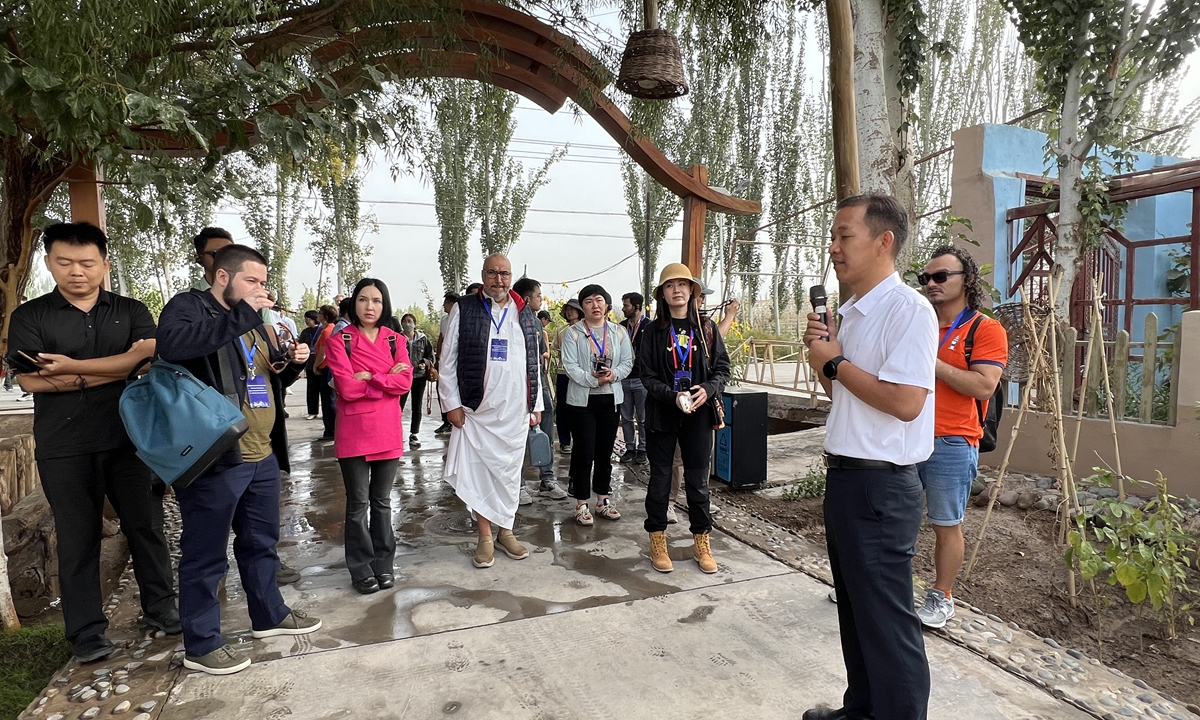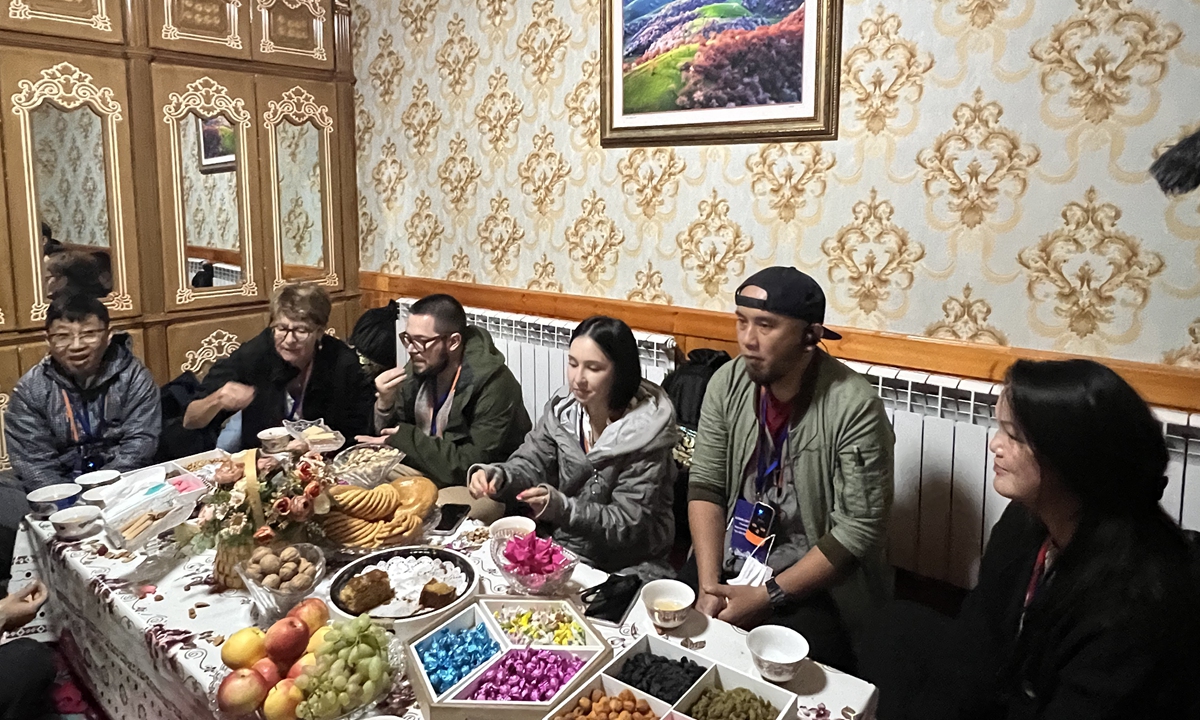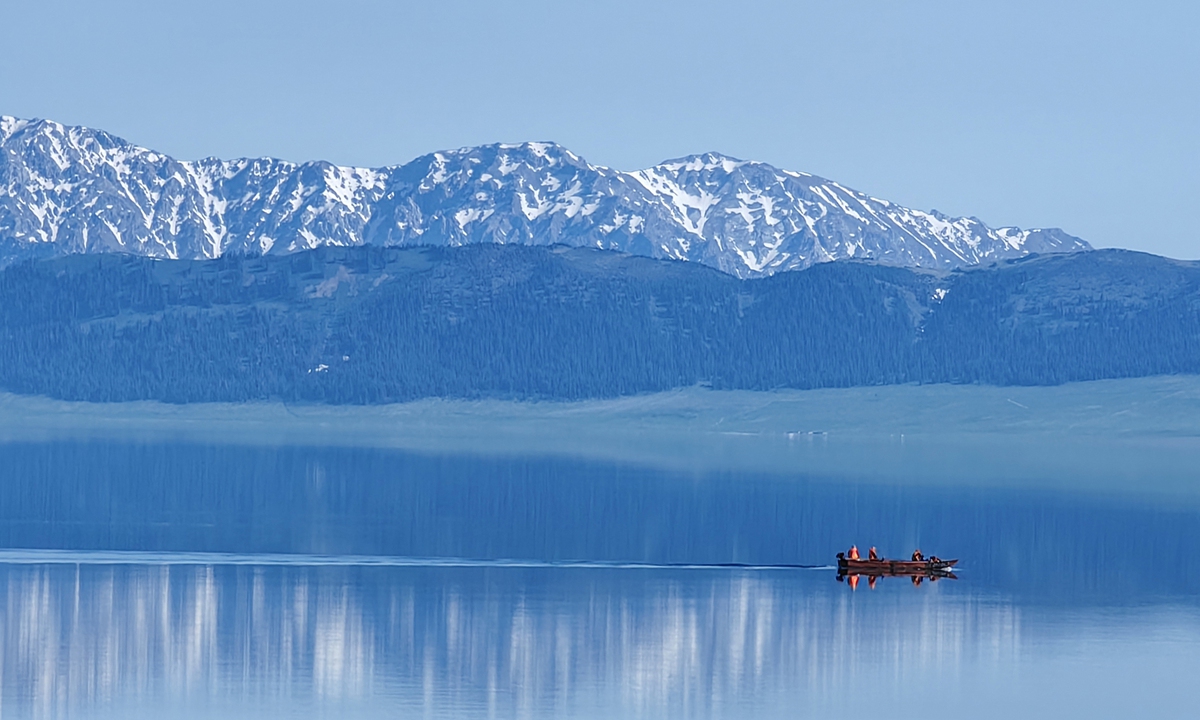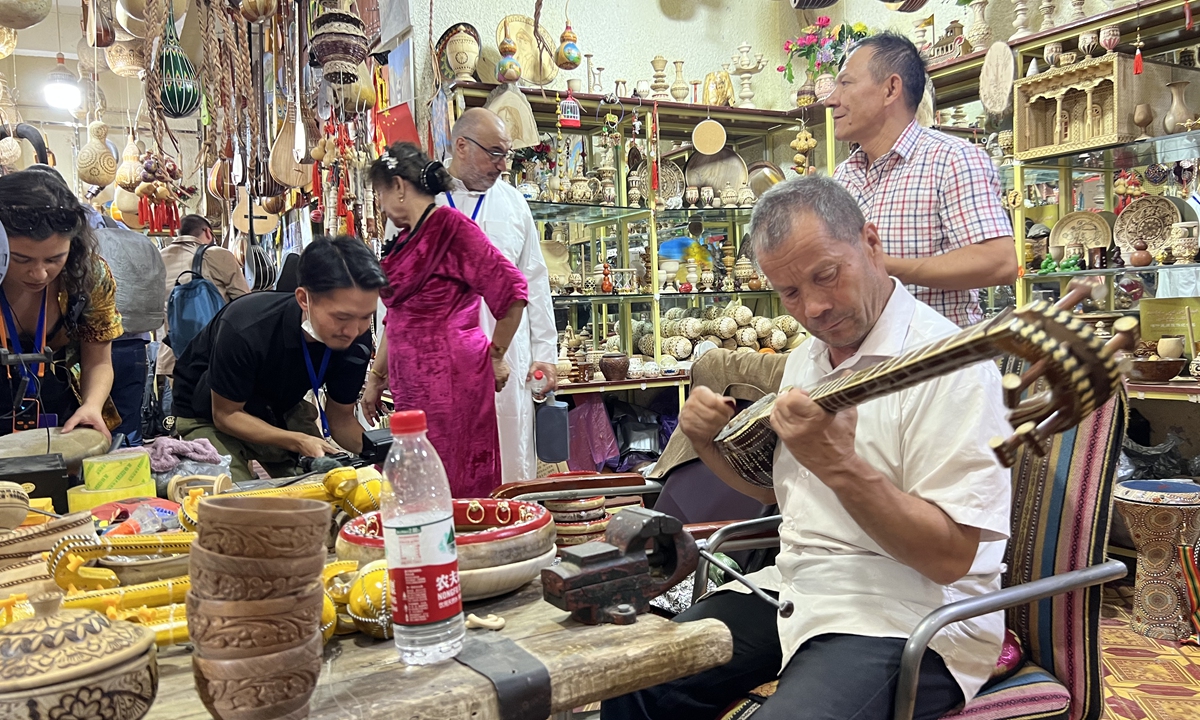Foreign reporters accomplish media trip in Xinjiang, impressed with vibrant local economy, diverse culture

Foreign journalists at Urumqi, Northwest China's Xinjiang Uygur Autonomous Region on Tuesday. Photo: Li Xuanmin/GT
More than 20 foreign journalists from 14 countries have finished their interviews across a number of cities in Northwest China's Xinjiang Uygur Autonomous Region on Wednesday.They appreciated China's tremendous efforts in caring for different ethnic groups and those with religious belief.
During the eight-day media event, they were impressed by Xinjiang's rapid economic development, diverse culture and how people from different ethnic groups have been living a prosperous and harmonious life in the region, the Global Times learned.
As seeing is believing, the foreign journalists also develop a clear and comprehensive picture of the region after the trip, in contrast to certain Western media's disinformation efforts. They also pointed out that Chinese law guarantees the freedom of religious belief for all ethnic groups.
"The local lives of the Muslims have been improving, which shows that the Chinese government has been pouring a lot of efforts to guarantee locals' livelihood," Alghamdi, a cultural consultant of a Saudi Arabia newspaper, said after visiting several mosques in Xinjiang, including Shanxi Mosque and Idkah Mosque in Kashi. "Some of the stories we heard from elsewhere is [obviously] inaccurate."
The booming economy and vibrant culture in Xinjiang are very inspiring in the eyes of those foreign journalists.
"I see a region which is very dynamic and developing at a very fast pace. There are many ethnic groups, and they all peacefully live with each other. The Chinese government does really a lot to invest in this region to create new jobs, to help the region to realize its full potential, and to support local culture," an editor from a Russian news agency named Maxim told the Global Times.
Maxim said the local diverse culture was the most interesting part of the trip, as the cultural aspect in the region is not always in the media limelight. "Through the artistic activity, we gain more knowledge on the local culture and lives," Alghamdi noted after watching local dance performance and folk songs played with local musical instruments.
As this year marks the 10th anniversary of the Belt and Road Initiative (BRI), some foreign journalists from the countries participating in the joint building of the BRI told the Global Times that they look forward that their home countries could forge closer economic ties with China.
"Trade cooperation between Xinjiang and Central Asian countries has been in the fast lane, and I hope there are more in-depth cooperation between Xinjiang and Tajikistan. In economic sphere, I hope the governments could sign more bilateral deals to promote trade growth," Usmon from a Tajikistan-based news agency noted.
He added that the BRI has played a pivotal role in driving the economy of Tajikistan and bridging people-to-people exchanges between the two countries in the past years.
A number of reporters also showed great interest in the exhibition concerning Xinjiang's fight against terrorism and extremism during the media activity.
"There had been no terrorist attack for six consecutive years, which shows the stability and security of the region," Supachai, a Thai journalist, told the Global Times. A Philippine reporter named Judahnissi said the exhibition helped him to develop an understanding on how Xinjiang has fully recovered from terrorist attacks in the past and become a secure and peaceful place.
The eight-day media event is themed "Approaching the Core Area on 'the Silk Road Economic Belt." The groups of reporters are from 17 overseas media organizations, including those based in Kyrgyzstan, Russia, Saudi Arabic, and Thailand.
Global Times



